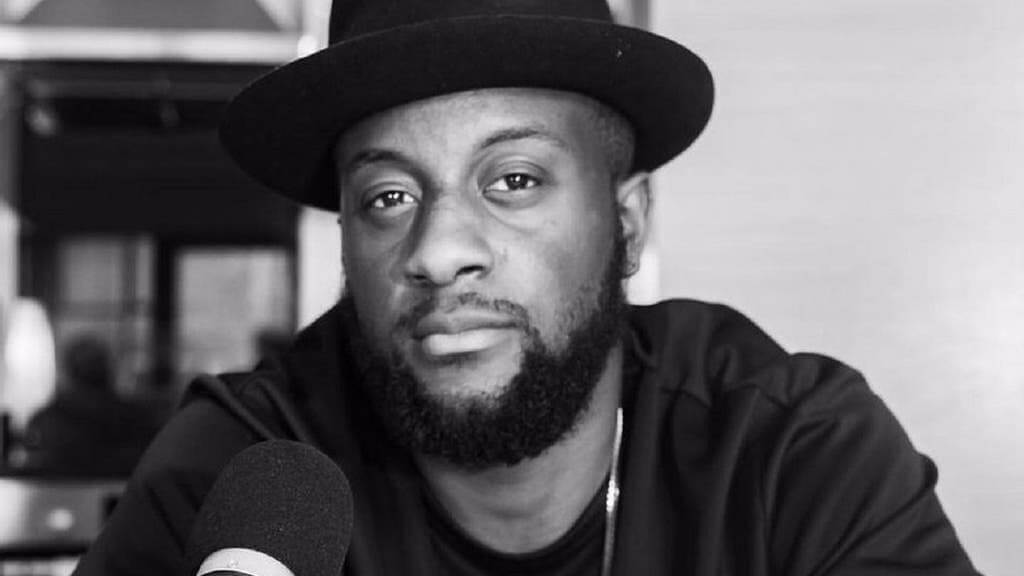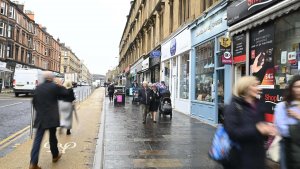William Adoasi says issues like Black Lives Matter will ‘never be alleviated without capital’ and education can help to tackle this.
Offer Young People A Business Education To Tackle Inequality, Says Entrepreneur
William Adoasi says issues like Black Lives Matter will ‘never be alleviated without capital’ and education can help to tackle this.

A young businessman has said offering young people from low-income or underrepresented backgrounds an entrepreneurial education can help to tackle societal and racial inequality.
Born and raised on a south London council estate, British-Ghanaian William Adoasi, 31, founded high-end watch brand Vitae London in 2016 and recently saw the company surpass one million US dollars in revenue.
For every watch sold, Vitae London supports a child in Sub-Saharan Africa through education – providing them with two sets of school uniforms and shoes for a year or a solar-powered lamp so they have a light source with which to study.
“My family have come from a lower-income background, and with the capital I bring in now I make an impact in the background where I come from,” said Mr Adoasi.
“If more people rise up within structures, they can do the same… instead of shouting and screaming, we want to change, they’ll actually be in the position to make that change.
“We can look at issues like Black Lives Matter, issues pertaining to people from certain demographics and certain communities – and without capital… a lot of the issues in those communities will never be alleviated.
“Unfortunately, this is the world we live in.”

Mr Adoasi said the onus is on firms to diversify and give back to communities, but governments need to act by providing children from lower-income backgrounds with an education about how to succeed in business.
“Often the education system is angled to prepare people for work… as opposed to actually looking at entrepreneurship and educating people about building businesses,” he said.
“As I’ve grown in the business… I’ve understood just how much I wasn’t aware of.
“You would hear discussions around ‘what’s your exit strategy’… I didn’t know what an exit plan was.
“It’s about understanding and ascertaining where people are in terms of their exposure to the wider world.”
Atlanta 📍 // New City, Same vision // @VitaeLondon x @Nordstrom pic.twitter.com/pNZktRUuii
— ADO | William Adoasi (@WilliamAdoasi) June 1, 2021
The oldest of seven, Mr Adoasi earned a scholarship to a prestigious boarding school after having the importance of education instilled in him by his father.
“I think my dad was the first in my family line to learn to read and write,” Mr Adoasi told the PA news agency.
“He grew up in a village in Ghana and he had to beg family and friends just for the basics in order to go to school.
“Him getting an education, it broke a cycle of poverty that was affecting my family for generations.”
After beginning his first company aged 19 – a sports academy called Starlight Academy – Mr Adoasi then worked as a recruitment consultant, before being awarded a loan by Virgin StartUp to help launch Vitae London in 2016.
Virgin owner Sir Richard Branson still wears Vitae London’s watches, as does Ghanaian President Nana Akufo-Addo and popstar Emeli Sande amongst other public figures.
Vitae London also recently signed a deal with American luxury chain Nordstrom to sell in 30 of its department stores, but Mr Adoasi said the key to his business is its charitable element.

“Vitae is Latin for life, so our whole mantra is to be the watch brand changing lives,” Mr Adoasi added.
“We’ve now distributed over 5000 solar lamps to children in need and over 3000 school uniforms.
“We’re obviously scaling ways to generate revenue, but the most important thing is actually scaling impact.”
According to Virgin StartUp two million people started a side project during lockdown, and from May 2020 to the end of that year the number of new businesses set up was 30% higher than the same period the year before.
“The pandemic has allowed people to refocus on what’s important to them,” said Linda Grant, chair of Virgin StartUp.
Thanks for signing up to Minutehack alerts.
Brilliant editorials heading your way soon.
Okay, Thanks!
